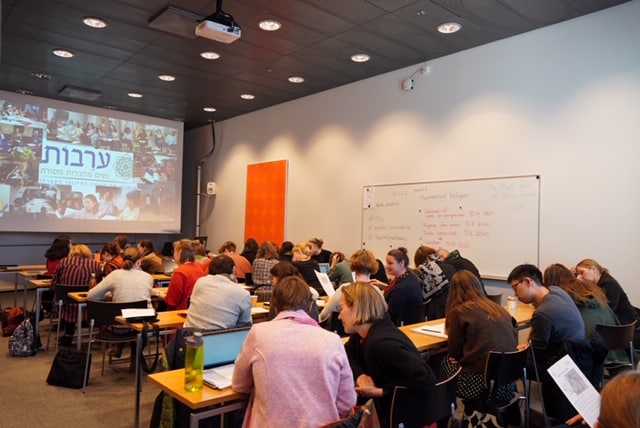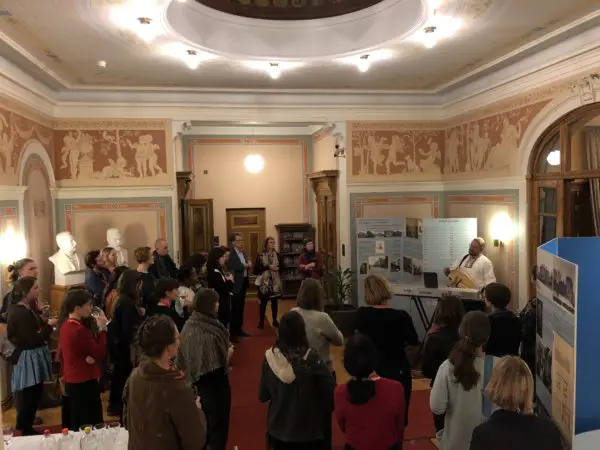
Insights from the Feminism and Hospitality conference
As academics, we are both parts of an intellectual tradition and taking our share in a social movement as we reach out to the general public with our questions, writes PhD student Mercédesz Czimbalmos (Åbo Akademi University) in her conference report to the Donner Institute. The conference Feminism and Hospitality: Religious and Critical Perspectives in Dialogue with a Secular Age was arranged in Turku 5-8th March, as a joint event between the Nordic Summer University, FHPT/Åbo Akademi University, The Donner Institute and The Polin Institute.
The event began with remarks by Laura Hellsten, one of the main organizers of the event. Already at the opening of the conference, participants could understand that they were not sitting in a traditional academic set-up: scholars and students as well as artists and activists were participating in the symposium, and were engaging in discussions about hospitality through a variety of fields and experiences in a way that definitely transcended the hierarchies of academia.

Hospitality, solidarity and feminism fall within the domains of many disciplines both in academic and non-academic settings, which was also demonstrated by the four keynote speakers who approached the main topic of the conference through different lenses: Prof. Terhi Utrianen talked about the notion of ’spirituality’ in connection to ’religion’ and ’secularity’, DSocSci Talvikki Ahonen about the Finnish church asylum movement, and Dr. Kaia S. Rondhal on the concept of hospitality from the perspective of the Nordic borderland. Last, but not least, the only non-Nordic keynote speaker, Dr. Angy Cohen guided the listeners through a Jewish lense on hospitality and solidarity. Both the keynotes and the paper presentations demonstrated that many religions and philosophical worldviews uphold the concept of hospitality as their core. The event did live up to the encouragement of the organizers: keynote speakers, presenters and participants were constantly engaging in inspiring discussions, in a relaxed, easy atmosphere not only during and after the presentations, but also during several networking possibilities that were generously provided by the conference organizers and sponsors.

The event proved that as academics, we are both parts of an intellectual tradition and are also taking our share in a social movement, when trying to reach out to the general public with questions that concern us the most – no matter how theoretical our work seems sometimes. The most important takeaway, that was reaffirmed – again – was, that either we are academics, artists or activists, we need to recognize both the academic and non-academic work that has to be done in order to achieve some kind of positive change in contemporary societies. Perhaps we need to learn and even utilize tools and approaches that may be foreign to us. Whilst all of us are doing whatever we know the best, we should not forget that our long-term task is to make change, which can only be done if we orchestrate the conversations among representatives of several approaches and disciplines.